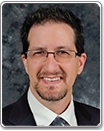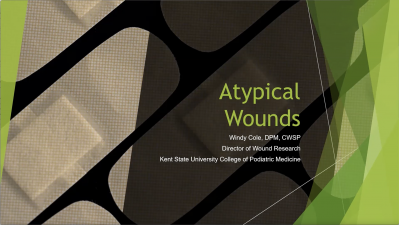
Practice Perfect 810
Does College Prepare Students for Podiatric Medical School?
Does College Prepare Students for Podiatric Medical School?

As a teacher at one of the podiatric medical schools, I tend to see one common theme in students that get themselves in academic trouble. Very simply, when they fail courses, it becomes unfortunately clear that these students are studying wrong.
You might be thinking that how a person studies is an individual pursuit depending more on that person’s “study style” or the amount of time they study. As it turns out neither of these are entirely true. A reasonably solid body of education research has described effective study methods for all students, whether in college or advanced education like medical school. An excellent discussion and summary of these methods are presented in Make It Stick: The Science of Successful Learning by Brown, Roediger, and McDaniel. Every student entering podiatric medical school should read this book and adopt their methods.
I previously discussed this topic way back in Practice Perfect 399 – How to Study – but this is such an important topic that it bears summarizing the major study methods suggested by Brown and colleagues:
- Effort – learning is deeper and more enduring if effortful, and we are poor judges of when we are learning.
- Rereading and massed practice (ie, cramming) are the least productive study methods. Rereading creates a false sense of familiarity with the material that does not necessarily translate to long-term retention.
- Retrieval practice – recalling from memory (AKA “testing”) is more effective than rereading. This does two things: 1. It tells you what you don’t know. 2. It strengthens mental connections when the brain must reconsolidate material forgotten in the intervening time between sessions.
- Spaced practice (repeatedly coming back to the studied material with time in between) and interleaving (studying alternating different topics) are more effective than massed practice but seem harder. Research has shown that allowing for some time between study sessions causes us to forget a portion of what we previously studied, forcing us to work harder to recall the forgotten material. This embeds the material more effectively in our long-term memory.
- Trying to solve a problem before being taught the solution leads to better learning.
- Studying by “learning style” (example visual versus auditory learner types) is not supported by the literature. Instead, we should draw on all learning styles.
- Extract the underlying principles that differentiate types of problems. This allows us to better choose an answer when confronted with a conceptual problem. Put new knowledge into the larger context.
- Elaboration, or expressing the information in your own words and connecting it with what you already know, is highly effective.
Now, to get to my original question, should undergraduate colleges teach students how to study before they go to medical school, I argue, absolutely! Most American universities appear to consider this “study skills”, as if it’s a subset of more general organization skills, like time management. I disagree with this philosophy. Learning how to learn in the most effective way is the most important skill an undergraduate university can teach their students, especially those going on to any type of advanced training.
Learning how to learn in the most effective way is the most important skill an undergraduate university can teach their students, especially those going on to any type of advanced training.
An interesting study from Rodriguez and associates supports the benefits of teaching students how to study1. These researchers examined if teaching STEM students in college spaced learning and retrieval practice (AKA self-testing) would improve testing outcomes. The researchers chose a 10-week molecular microbiology class with three-sections, where two of the sections were the control and the third was the intervention group. This group received a 10-minute lecture about how to study using spaced learning and self-testing as well as weekly reminders to use these methods when studying. Students in all sections were surveyed before and after the course. Students who used these methods were found to have statistically significantly improved examination outcomes in comparison with those students using typical methods. Studies such as this argue for a more formalized education in learning methods during undergraduate education. By the time students get to the medical school graduate-level education it’s too late to change habits that should have been built years before – at least without a lot of work on the part of the student.
Students who used these methods were found to have statistically significantly improved examination outcomes in comparison with those students using typical methods. Studies such as this argue for a more formalized education in learning methods during undergraduate education.
If you consider the undergraduate study experience and expertise in studying, it’s pretty clear many are underprepared. The volume of material to learn in college, even in the sciences, is markedly less than the volume in medical school. As such, they have a lot more time to prepare for examinations in college, which are likely easier than those exams taken in med school. Given these factors and the high stakes involved with medical education (students must actually learn the material to treat patients successfully), it seems clear that undergraduates should be taught the best ways to learn. Also, given that learning how to learn in our modern society, where all fields are dynamically changing, is an important skill for all college students, it is abundantly clear that all undergraduates, regardless of their major, should take a formal course in learning methods.
It is abundantly clear that all undergraduates, regardless of their major, should take a formal course in learning methods.
Student failure during medical school is a treatable problem, but preventing this from occurring in the first place by giving undergraduate students the skills they need while still in college will be a worth its weight in academic gold.
Best wishes.

Jarrod Shapiro, DPM
PRESENT Practice Perfect Editor
[email protected]

































Comments
There are 0 comments for this article